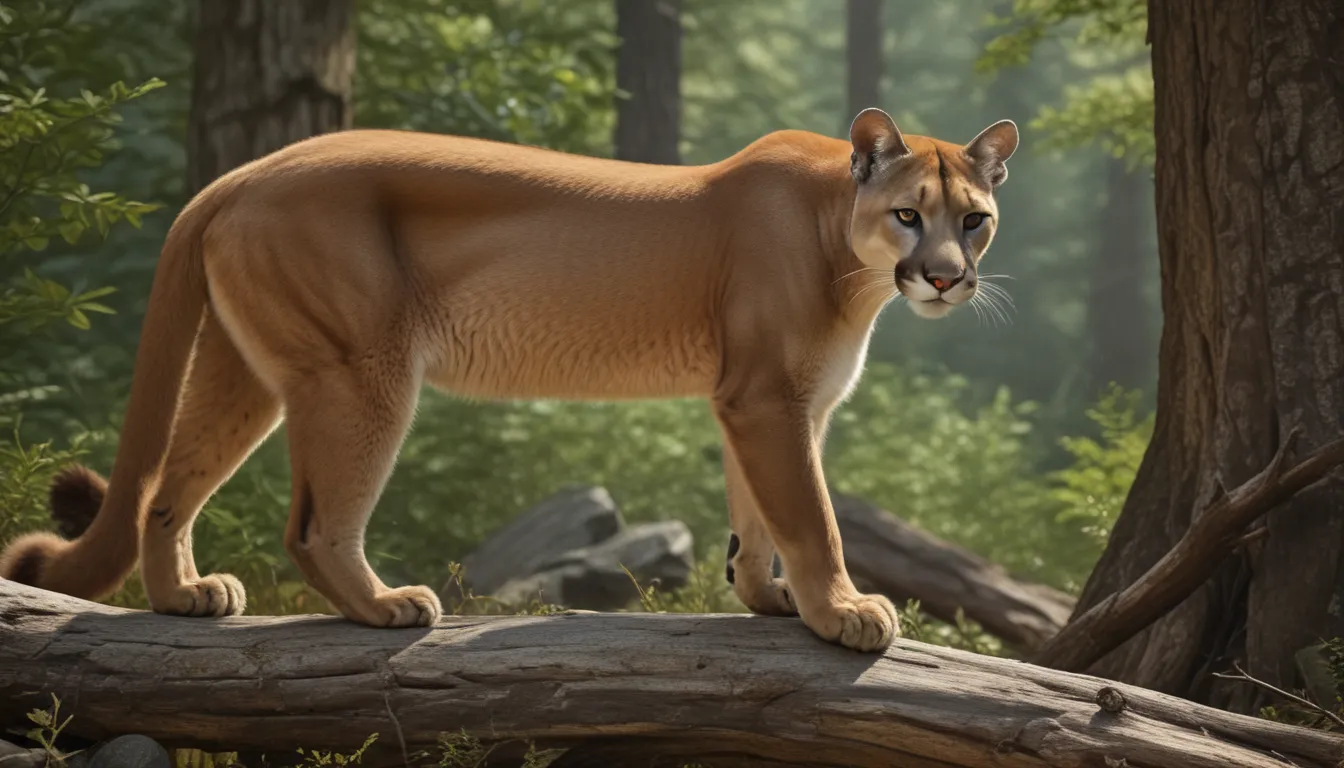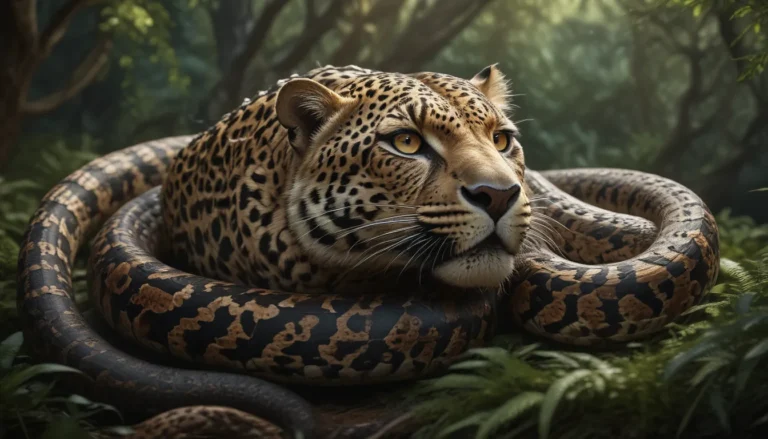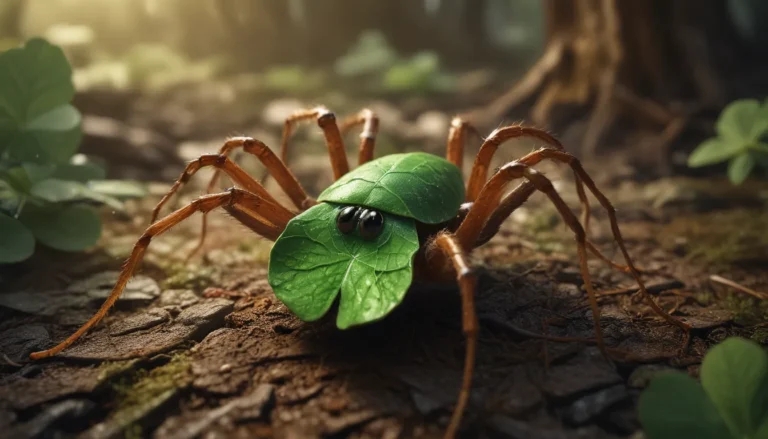The pictures we use in our articles might not show exactly what the words say. We choose these pictures to make you interested in reading more. The pictures work together with the words but don’t take their place. The words still tell you the important facts.
Maine, a state known for its stunning natural beauty and diverse wildlife, is home to a fascinating creature - the mountain lion. Also known as cougars or pumas, these elusive predators have captured the imagination of animal enthusiasts and researchers alike. Join us as we delve into the world of mountain lions in Maine and uncover 20 intriguing facts about these majestic animals.
The Enigmatic Presence of Mountain Lions in Maine
- Native Residents: Mountain lions, also known as cougars, pumas, or panthers, are native to Maine and once roamed freely across the state.
- Declining Population: While their population has significantly declined over the years, these creatures continue to be a subject of interest and debate among wildlife experts.
Characteristics of the Majestic Mountain Lion
- Largest Wildcat Species: The mountain lion is the largest wildcat species in North America, with adult males reaching lengths of up to 8 feet and weighing up to 200 pounds.
- Versatile Habitat: Despite their name, mountain lions can inhabit various terrains, including forests, deserts, and grasslands.
Solitary Predators with Impressive Skills
- Solitary Lifestyle: Mountain lions are solitary animals, preferring to live and hunt alone, with the exception of females raising their cubs.
- Skilled Hunters: Their diet primarily consists of deer, showcasing their impressive hunting skills and ability to take down prey much larger than themselves.
Fascinating Behaviors and Vocalizations
- Wide Range of Vocalizations: Mountain lions can produce screams, growls, purrs, hisses, and even mimic the sounds of other animals.
- Reproductive Cycle: Female mountain lions have a gestation period of approximately 90 days and typically give birth to a litter of 1 to 6 cubs.
Conservation Status and Historical Extinction
- Extinction of Eastern Mountain Lions: The extinction of eastern mountain lions occurred in the late 1800s, with reported sightings in Maine believed to be individuals dispersing from Western populations.
- Debated Presence: The presence of mountain lions in Maine continues to be a subject of debate among experts, with ongoing investigations by the Maine Department of Inland Fisheries and Wildlife.
Threats and Conservation Efforts
- Habitat Loss: The main threats to mountain lions in Maine include habitat loss and fragmentation due to human development.
- Ecosystem Balance: Mountain lions play a crucial role in maintaining ecosystem balance by regulating prey populations and preventing overgrazing.
Unique Characteristics and Abilities
- Stealthy Hunters: Mountain lions are highly elusive and stealthy, with the ability to adapt to various habitats and masterful natural camouflage.
- Incredible Jumping Ability: These predators can leap up to 20 feet in distance and 15 feet in height, allowing them to ambush prey from above or navigate challenging terrain.
Advocacy for Reintroduction and Lifespan
- Reintroduction Advocacy: Some individuals advocate for the reintroduction of mountain lions to Maine to enhance biodiversity and ecological balance.
- Retractable Claws: Mountain lions have retractable claws, allowing them to silently stalk and ambush prey without revealing their presence.
Human Interaction and Conservation Measures
- Non-Aggressive Nature: Mountain lions are generally non-aggressive towards humans, with attacks being rare and typically occurring when the animal feels threatened.
- Conservation Challenges: The conservation of mountain lions in Maine is a complex issue, requiring a balance between ecological needs and human safety concerns.
Embracing the Presence of Mountain Lions in Maine
In conclusion, while mountain lions were previously considered extinct in Maine, recent sightings suggest a possible small resident population. These majestic predators play a vital role in the ecosystem and add to the diverse wildlife of the state. Continued monitoring and conservation efforts are essential to ensure their protection and coexistence with humans. With a combination of research, awareness, and preservation, we can secure a future where humans and mountain lions live harmoniously in Maine.
FAQs
Q: Are mountain lions dangerous to humans?
A: While powerful predators, mountain lions typically avoid interactions with humans and attacks are rare.
Q: How can I identify a mountain lion in Maine?
A: Mountain lions have tan fur, long tails, and distinctive features such as rounded ears and a slender face.
Q: Are mountain lions protected in Maine?
A: Mountain lions are not currently protected under state or federal law in Maine, but conservation efforts are ongoing.
Q: What should I do if I encounter a mountain lion in Maine?
A: Remain calm, make yourself appear large, back away slowly, and avoid sudden movements.
Q: Can I keep a mountain lion as a pet in Maine?
A: It is illegal to keep a mountain lion or any wild animal as a pet in Maine without proper permits.
Engaging with Valuable Content
Our commitment to delivering credible and engaging content is reflected in each fact shared on our platform. Real user contributions and meticulous editorial reviews ensure the accuracy and authenticity of the information we provide. Explore and learn with confidence as you immerse yourself in the diverse world of wildlife and conservation. Trust in our dedication to quality as we continue to share fascinating insights and knowledge with you.






